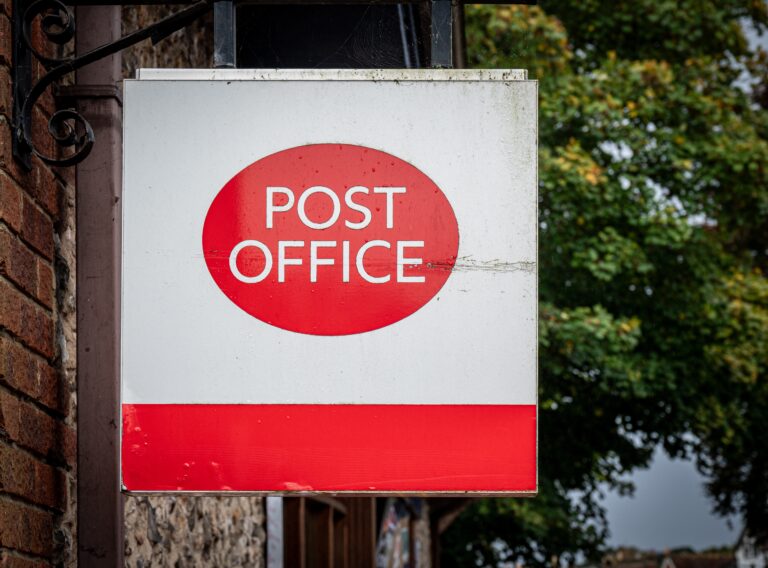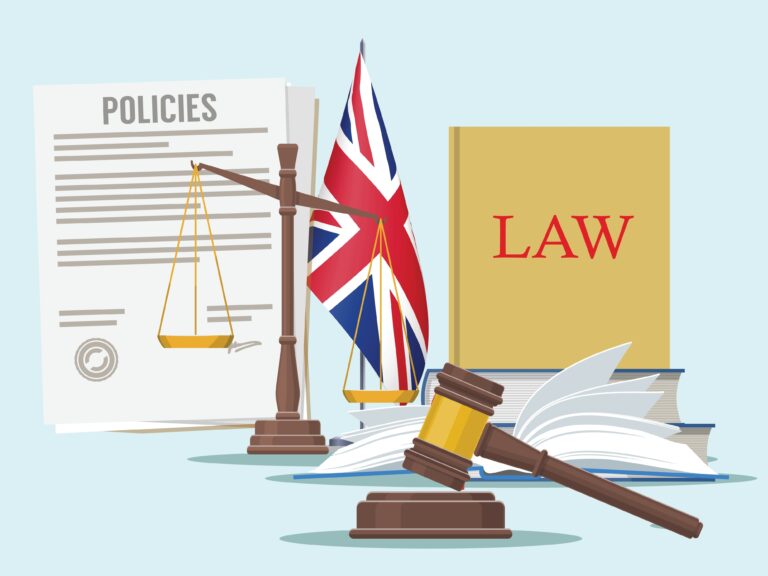
Setting the Ground Rules
Vulnerable witnesses in the civil courts – A personal journey through an APIL campaign
The reforms which are being ushered into our Civil Procedure Rules on the 6th April are the culmination of years of campaigning by APIL and others to make the court room a safe space for vulnerable parties and witnesses. The idea is to enable everyone who is required to give evidence in court give their best evidence. I had no idea however that what APIL and others were calling for would need such comprehensive reform: The re-writing of the over-riding objective no less, and a widening of the definition of proportionality.
The start (for me)
My personal interest in this area came with representing survivors of child abuse. I saw some frankly shocking examples of poor practice in our courts which stirred the campaigner in me:
- At a High Court trial, my client – a young man with a psychiatric history as a result of years of abuse as a child – was viciously cross examined over his recollection of events, and repeatedly accused of lying, whilst the judge looked on passively.
- In another case a female client was allowed to be cross examined by the defendant who was unrepresented and had previously been convicted of sexually assaulting her.
- Perhaps the most alarming was a case where the defendant admitted that my clients had been abused by their teacher. The case turned on limitation, causation and quantum. However the judge insisted my clients give evidence in open court as to the detail of their abuse, even after defence counsel rose to explain this was unnecessary as the allegations were admitted. The judge then peppered my clients’ testimony with asides which suggested he did not feel that the abuse was at all serious.
- On top of these scenarios I cannot count the number of times when a client has instructed me to accept a low offer against advice just to avoid the experience of giving evidence in court.
Vulnerability is not of course the preserve of abuse victims alone. As personal injury practitioners, the majority of our clients will have suffered some degree of trauma and many will be vulnerable either as a result of the issues over which they are litigating, or other pre-existing problems; which is why these reforms are so vital.
The journey
In June 2014 I met Felicity Gerry QC for the first time, a fellow speaker at APIL’s child abuse conference. She shared my view that the civil courts needed shaking up to accommodate vulnerable witnesses, just as the criminal jurisdiction had recently established ‘ground rules hearings’ in a 2013 update of the Criminal Procedure Rules: Way back, the Youth Justice and Criminal Evidence Act 1999 had already introduced the concept of putting in place ‘special measures’ for vulnerable witnesses, such as allowing witnesses to give evidence from behind a screen, or in private, or by live video link, or even have their testimony pre-recorded. There was also a ban on unrepresented defendants cross examining prosecution witnesses in cases involving alleged sexual offences, and a rule allowing the use of intermediaries to facilitate understanding and the giving of evidence. Ground rules hearings were an opportunity for the court to assess whether any witness at trial was likely to be vulnerable and needed special measures putting in place to allow them to give their best evidence. (The Family Procedure Rules followed suit when they were updated in 2017.)
Felicity and I were so fired up that we wrote an article about this which was published in The Times (I think) later that year. An introduction to Professor Penny Cooper followed who asked us to put a team together to write a best practice toolkit for civil practitioners when taking evidence from vulnerable witnesses. The Advocate’s Gateway Toolkit 17 (“Vulnerable Witnesses and Parties in the Civil Courts”) was duly published in July 2015. The Civil Justice Council later called this “an extremely valuable aid for Judges and practitioners… which should be consulted before any hearing involving a vulnerable or potentially vulnerable party or witness.”[1] Praise indeed!
The notion that change was necessary was canvassed in my inaugural speech as APIL president in 2015. However despite having been invited to put forward suggestions for reform by the Civil Procedure Rules Committee (CPRC), our communications to them on this topic throughout my tenure were ignored.
However at about this time I was also feeding into the work of the Independent Inquiry into Child Sexual Abuse (IICSA) and I was among many who raised the plight of how abuse survivors were sometimes treated in court within our adversarial system. I was thrilled to see in its interim report published in April 2018 that the Inquiry recommended that civil justice be brought in line with the criminal courts, and specifically called on the CPRC “to ensure that judges presiding over cases relating to child sexual abuse consider the use of protections for vulnerable witnesses.” [2]
As I was to find out IICSA’s recommendations were going to be taken very seriously by the Ministry of Justice. In July 2018, along with Brett Dixon, then APIL president, I met with a high ranking civil servant at 102 Petty France to discuss the Inquiry’s proposals. She readily accepted the view that reform to civil procedure should not only apply to cases involving child sexual abuse but all cases where a party or witness may be vulnerable. It certainly did not harm our cause that Brett was also by now a member of the rules committee and I can only imagine that Brett’s work behind the scenes was instrumental in getting these reforms over the line.
There followed an APIL members’ survey, which led to the Ministry directing the Civil Justice Committee (CJC) to consult more widely on the issue. The CJC’s report in 2020 laid out the roadmap to reform and it tasked the rules committee with implementing the changes. Brett was a member of the relevant working party and its interim recommendations on the technical changes needed were approved at the CPRC’s public meeting which I attended in May last year. The final rule changes were signed off that November and duly come into force on the 6th April 2021.
So what’s changing?
The over-riding objective is re-defined at CPR 1.1 (2): “Dealing with a case justly and at proportionate cost includes, so far as is practicable – (a) ensuring the parties are on an equal footing and can participate fully in proceedings, and that parties and witnesses can give their best evidence”.
There is then a reference to a new Practice Direction 1A (at CPR 1.6) which supplies a non-exhaustive list of indicators of potential vulnerability in a witness:
- Age, immaturity or lack of understanding;
ii. Communication or language difficulties (including literacy);
iii. Physical disability or impairment, or health condition;
iv. Mental health condition or significant impairment of any aspect of their intelligence
or social functioning (including learning difficulties);
v. The impact on them of the subject matter of, or facts relevant to, the case (an
example being having witnessed a traumatic event relating to the case);
vi. Their relationship with a party or witness (examples being sexual assault, domestic
abuse or intimidation (actual or perceived));
vii. Social, domestic or cultural circumstances.
The court and the parties should work together in identifying vulnerability at the earliest stage possible. Then if necessary the court should hold a ‘grounds rules’ hearing before evidence is taken to consider what special measures should be put in place to ensure the vulnerable witness can give their best evidence.
To support the parties, the test of proportionality is revised at CPR 44.3 (5)
“Costs incurred are proportionate if they bear a reasonable relationship to… (f) any additional work undertaken or expense incurred due to the vulnerability of a party or a witness.”
The practical consequences
This is not so much about giving the court more powers than it already has, it is more about drawing the court’s attention to the issue of vulnerability as soon as it is seized of a case. Each party now has an obligation to consider whether special measures are required for any vulnerable witness (who may of course also be a party to the litigation). Once that has been established, the court’s general powers of case management can be utilised to assist the witness in a number of ways – giving evidence from behind a screen, or by video link, to directing the cross examination of a witness, taking a deposition or relying on the help of an interpreter or an intermediary.
The reforms thus bring the civil courts in line with the approach taken in the criminal and family divisions. As practitioners we need to consider the vulnerability of our clients or their witnesses in earnest, make sure that we have brought the issue to the attention of the court at the earliest opportunity and insist (politely) that the court uses its powers to ensure that the best evidence is heard. To my mind this means that as from the 6th April, our justice system will just get a little bit fairer.
8th March 2021
Jonathan Wheeler
Managing Partner, Bolt Burdon Kemp and Past President of APIL (2015-2016)
[1] Civil Justice Council: “Vulnerable Witnesses and Parties Within Civil Proceedings: Current Position and Recommendations for Change”, 20th February 2020: https://www.judiciary.uk/wp-content/uploads/2020/02/VulnerableWitnessesandPartiesFINALFeb2020-1.pdf, para. 151
[2] IICSA Interim Report, 25th April 2018, chapter 7, para. 9: https://www.iicsa.org.uk/document/full-interim-report-independent-inquiry-child-sexual-abuse
The original article entitled ‘Setting The Ground Rules’ by Jonathan Wheeler, first appeared in the April 2021 edition of PI Focus.










